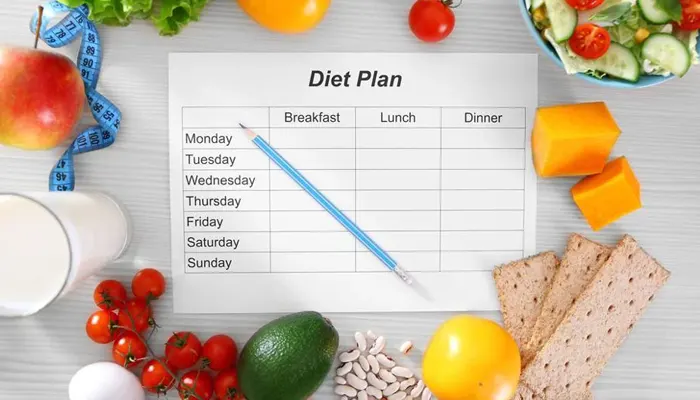Ayurveda Aaj - Start Your Day Right: Ayurvedic Morning Rituals for Balance and Wellness
- Soham Halder
- 1 year ago
- 4 minutes read

Ayurveda offers time-tested methods to start your day with the right intention for balance, energy, and well-being.
Rooted in ancient wisdom, Ayurvedic morning rituals, also known as ‘Dinacharya’ are the simplest ways of aligning body, mind, and spirit with nature's rhythms. By practicing these daily routines we can gradually cultivate resilience against stress, enhance energy, as well as foster a deep sense of wellness for the whole day. In this article, we’ll discuss essential Ayurvedic morning rituals for lasting vitality.
Catch the Sunrise, Transform Your Day:
It's always good to wake up before or at the time of sun rise. The loving or sattvic qualities of nature bring peace of mind as well as freshness to the senses. Ideal waking up timing for Vata, Pitta and Kapha people are 6 a.m., 5:30 a.m., and 4:30 a.m. Right after waking up, look at your both the hands and then gently move them over your face and chest down to the waist for cleansing the aura. You should also start your day with heartfelt gratitude or prayers for well-being.

Energize and Refresh:
Splash your face with cold water and clean your mouth. Use only cold water to wash your eyes, massage the eyelids gently. Blink your eyes at least 7 times and rotate eyes in all directions. Then, dry your face with a clean towel. Tridoshic eyewash uses try triphala. Pitta eyewash should be done with cool water or rose water, while diluted cranberry juice is best for kapha eyewash.
Sip Your Way to Wellness:
After washing, drink a glass of room temperature water, kept at a pure copper cup/glass filled the night before. It flushes the kidneys, and stimulates peristalsis. Do not start your day with tea or coffee as it promotes constipation and drains kidney energy. Drink this first water of the day everyday at the same time.
Evacuation:
Practice squat for better bowel movement. You can also try alternate nostril breathing. After evacuation, wash the anal orifice with lukewarm water followed by washing hands with soap.

Scrape Your Tongue:
Now, it's time for scraping the tongue from the back forward, not more than 7-14 strokes. This stimulates your internal organs, promotes digestion as well as removes dead bacteria. Ideally, vata people should use a gold scraper, pitta a silver one, and kapha copper. However, Stainless steel is also a good choice for all.
Refresh Your Smile:
Use a soft toothbrush and an astringent, pungent, or bitter toothpaste or powder for cleaning your teeth. Roasted almond shell powder is beneficial for vata and kapha, while ground neem for pitta. This should be followed by gargling (at least twice a day). Warm sesame oil is good for gargling.
Chewing
Chewing a handful of sesame seeds or dried dates or dried coconut meat for strengthening teeth and stimulating digestive functions. After that, brush your teeth once again without toothpaste or powder.
Nasal Drops (Nasya):
Putting 3 to 5 natural nasal drops are beneficial for mental clarity, vision, and sinuses. For Vata, Pitta, and Kapha, sesame oil, brahmi ghee, and calamus root oil respectively are preferred.

Karana purana & Abhyanga:
Nasal drop should be followed by putting oil in ear or Karana purana to treat poor hearing and removal of ear wax. This is followed by applying oil all over head and body, which is known as Abhyanga. For Vata, Pitta, and Kapha, use warm sesame oil, sunflower or coconut oil, and mustard oil respectively.
Bathing & Dressing:
Bathing is the best form of cleansing and refreshing to remove sweat, dirt, and fatigue while bringing holiness. For beauty and virtue, wear clean clothes always.
Signature Scents:
Perfumes bring charm, freshness while improving self-esteem.
Vata: best scent is hina or amber.
Pitta: Use khus, sandalwood, or jasmine.
Kapha: Use amber or musk.
(Credit - Insta/@weloveyoga_community)
Exercise:
Regular exercise improves circulation, strength as well as endurance. Effective exercise for different Doshas are as follows.
Vata: Sun salutation x 12, done slowly; Leg lifting; Camel; Cobra; Cat; Cow. Slow, gentle exercise.
Pitta: Moon salutation x 16, moderately fast; Fish; Boat; Bow. Calming exercise.
Kapha: Sun salutation x 12, done rapidly; Bridge; Peacock; Palm tree; Lion. Vigorous exercise.
This should be followed by quietly sitting and doing Pranayama as well as meditation.
Breakfast:
Now it is time for breakfast. In summer months, the meal should ideally be light and more heavier in winter season.
Enjoy your day!












